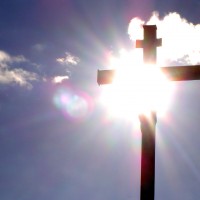I find it instructive and quite horrific that a handful of Muslim extremists around the world are zealously protesting (not with mere placards and raised voices, but with flag burning, violence, and killing) their prophet Mohammad being portrayed in a way they alone consider blasphemous. All this they justify by some obscure video that would not receive any attention were it not for the Internet which—just about everyone knows—is filled to the brim with hate, lies and deception against every group known to man. Going viral sounds like a sickness and indeed this situation bears all the hallmarks of something truly sick.
The low budget and now high profile clip has been glommed onto by the mobs looking for an excuse to denounce their enemies–particularly America and Israel–and engage in some holy war, all ostensibly to defend their prophet. To these extremists, their prophet needs defending, I guess. Mine doesn’t.
But they now have a pretext, a convenient excuse.
An excuse is nothing more than the skin of a reason, stuffed with a lie.
The skin of a reason is easy enough to discern. What is the lie? The lie is that innocence may be found among any Muslims, people of any other religious group, or humanity period.
 In all earthly history, there has only been—and will only be—one innocent human being.
In all earthly history, there has only been—and will only be—one innocent human being.
Only one innocent Prophet.
That Prophet was the person Jesus of Nazareth.
Ironically, as Christ, Jesus was exposed to ridicule, charges of blasphemy, and died a cruel death on a cross to purchase our souls. He was ridiculed, blasphemed, persecuted, mocked, stripped, beaten, and crucified in His lifetime, not after His death. Of course, after His death and resurrection, Jesus’ followers—the Christians—have certainly experienced their share of persecution.
Persecution happened to Muhammad too—at least that’s what some supporters of Islam assert. It’s a religion of peace, they cry. David Wood writes, http://www.answering-islam.org/Authors/Wood/two_faces.htm
“Islam has never been able to decide whether it wants to live in peace with unbelievers, or to pile their severed, unbelieving heads into a giant pyramid. I’m sure many would disagree here, but they would be disagreeing with one of the most empirically verifiable facts in the universe. Think about it. One Muslim beheads an innocent woman to protest the war in Iraq, while another Muslim curses him for slaying the innocent. One group of Muslims flies an aircraft into a building, while another group condemns the attack. One Muslim detonates a bomb on a bus filled with passengers, while another Muslim says on the evening news, “Islam is a religion of peace.” Each side quotes the Qur’an to support its actions. However, it may be even more important to note that each of them is following the example set by Muhammad.”
The italics are original to the piece and highlight something truly interesting. Muhammad did set an example of both violence and peace in his lifetime. Does Muhammad truly need defenders within Islam?
Well, the strong Messiah—true Prophet—needs no defenders. That’s the lesson Jesus teaches. He needed no defenders at all.
The proof is in the Resurrection. The proof is in His present sitting at the right hand of the Almighty in heaven. The proof will be case-closed when He returns to judge the quick and the dead.
Muhammad died either in what is claimed to be a natural death in the arms of his wife…or a death from poison, proving that he was a false prophet. But frankly, how he died is immaterial. Muhammad died. He is still dead.
 Jesus, on the other hand, rose from the dead.
Jesus, on the other hand, rose from the dead.
The strong Messiah, the true Messiah, the innocent Prophet needs no defenders.
His life both in the past, but importantly—in the present—is all the proof one needs.
How He lived set an example.
How He died changed the world as we know it.
Why are these Muslims so upset about the ridicule of their prophet? The Bible tells of Jewish prophets being persecuted throughout Scripture. Is anyone defending them by killing those prejudged to be infidels? Nope. With the exception of Elijah, all of Israel’s prophets died. Why defend the man Muhammad? What makes the human prophet of Islam different? Whether Jewish or Muslim, a dead human prophet is still dead.
I can tell you what makes Jesus different:
- He wasn’t just any prophet. Jesus is the innocent Prophet because only He is the Son of God.
- He is the innocent Prophet because He never sinned, not even once.
- Nor did He ever shed blood, except His own on the Cross at the hands of others.
- In His entire life, He never encouraged His followers to pursue violence in His name, to defend Him, or to save His reputation.
- Not even in his early days.
On the contrary, He said this, Matthew 5:8 “Blessed are the pure in heart, for they will see God. 9 Blessed are the peacemakers, for they will be called sons of God. 10 Blessed are those who are persecuted because of righteousness, for theirs is the kingdom of heaven. 11 Blessed are you when people insult you, persecute you and falsely say all kinds of evil against you because of me. 12 Rejoice and be glad, because great is your reward in heaven, for in the same way they persecuted the prophets who were before you.”
Jesus is the innocent Prophet because He told us to love our enemies. He is the innocent Prophet because even when people tried to take defense of Him into their own hands and solve things in a violent or political way, He reacted thusly:
Matthew 26:49 Going at once to Jesus, Judas said, “Greetings, Rabbi!” and kissed him. 50 Jesus replied, “Friend, do what you came for.” Then the men stepped forward, seized Jesus and arrested him. 51 With that, one of Jesus’ companions reached for his sword, drew it out and struck the servant of the high priest, cutting off his ear. 52 “Put your sword back in its place,” Jesus said to him,
for all who draw the sword will die by the sword. 53 Do you think I cannot call on my Father, and he will at once put at my disposal more than twelve legions of angels? 54 But how then would the Scriptures be fulfilled that say it must happen in this way?”
55 At that time Jesus said to the crowd, Am I leading a rebellion, that you have come out with swords and clubs to capture me? Every day I sat in the temple courts teaching, and you did not arrest me. 56 But this has all taken place that the writings of the prophets might be fulfilled.” Then all the disciples deserted him and fled.
Jesus is the innocent Prophet because He is God and knew every detail of the past and foresaw that true prophets of God will get persecuted and He would be sending prophets, wise men, and teachers whose role would involve persecution: their own persecution, not persecution of others.
John 15:18 “If the world hates you, keep in mind that it hated me first. 19 If you belonged to the world, it would love you as its own. As it is, you do not belong to the world, but I have chosen you out of the world. That is why the world hates you. 20 Remember the words I spoke to you: ‘No servant is greater than his master.’ If they persecuted me, they will persecute you also. If they obeyed my teaching, they will obey yours also. 21 They will treat you this way because of my name, for they do not know the One who sent me. 22 If I had not come and spoken to them, they would not be guilty of sin. Now, however, they have no excuse for their sin. 23 He who hates me hates my Father as well. 24 If I had not done among them what no one else did, they would not be guilty of sin. But now they have seen these miracles, and yet they have hated both me and my Father. 25 But this is to fulfill what is written in their Law: ‘They hated me without reason.’
Violence—as a holy war—is the path of those who do not know God.
The strong Messiah needs no defenders.
Matthew 23: 30 And you say, ‘If we had lived in the days of our forefathers, we would not have taken part with them in shedding the blood of the prophets.’ 31 So you testify against yourselves that you are the descendants of those who murdered the prophets. 32 Fill up, then, the measure of the sin of your forefathers! 33 “You snakes! You brood of vipers! How will you escape being condemned to hell? 34 Therefore I am sending you prophets and wise men and teachers. Some of them you will kill and crucify; others you will flog in your synagogues and pursue from town to town. 35 And so upon you will come all the righteous blood that has been shed on earth, from the blood of righteous Abel to the blood of Zechariah son of Berekiah, whom you murdered between the temple and the altar. 36 I tell you the truth, all this will come upon this generation.
The violence we see today piles up as accumulated signs of the end of the age. Whether today or tomorrow or the next, the Gospel of Peace—the Gospel taught by Jesus Christ—will be preached until He returns.
This Messiah–Jesus Christ–is not dead. He is alive!
Dead men cannot get out of their graves! But Jesus, the Son of God and Son of Man, rose from the dead. This is how He—and He alone—can return as the King of Kings and the Lord of Lords.
The strong Messiah, the innocent Prophet, Jesus Christ needs no defenders.
He is God and one can’t get any more powerful than that.


 When we see the limits, we can embrace a lean and muscular government—one like a marathon runner—an institution so focused on the finish line of civilization, humble restraint, and shepherding law and order that it has neither the time nor the desire to grow fat and lazy. A Jabba the Hutt government with an insatiable appetite for power and money isn’t what God had in mind.
When we see the limits, we can embrace a lean and muscular government—one like a marathon runner—an institution so focused on the finish line of civilization, humble restraint, and shepherding law and order that it has neither the time nor the desire to grow fat and lazy. A Jabba the Hutt government with an insatiable appetite for power and money isn’t what God had in mind.











